Mohan Bhagwat is a name that is respected and still shrouded with a lot of mystery in the corridors of power and influence in modern India. Being the sixth and current chief of the Rashtriya Swayamsevak Sangh (RSS), he has been able to become one of the most influential personalities in Indian politics and society.
But his rise to become the leader of the largest voluntary group in the world is a tale of remarkable sacrifice, undying determination and tremendous influence on the paths of the nation.
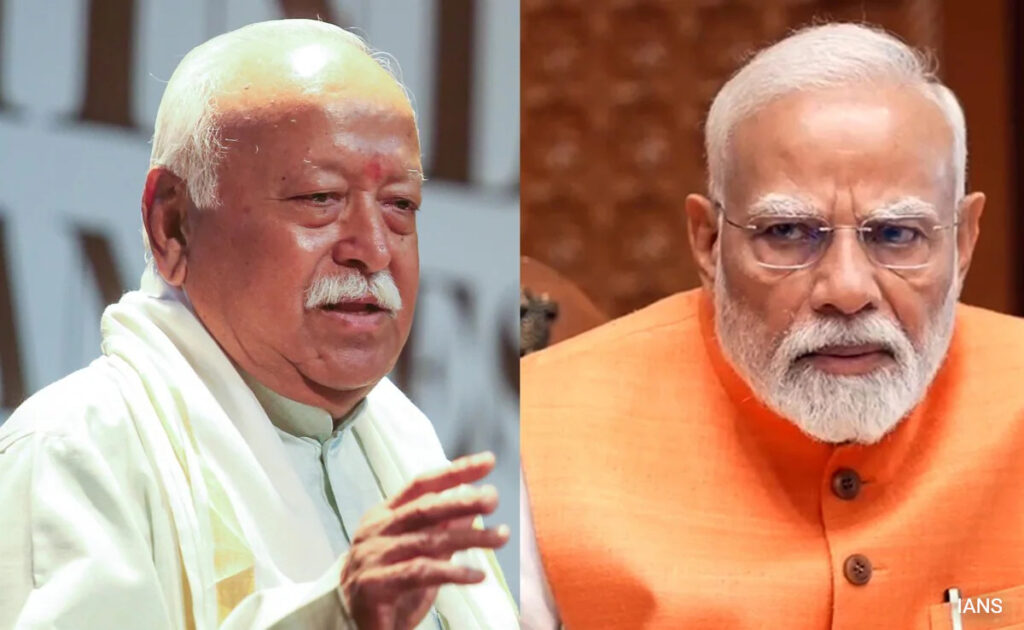
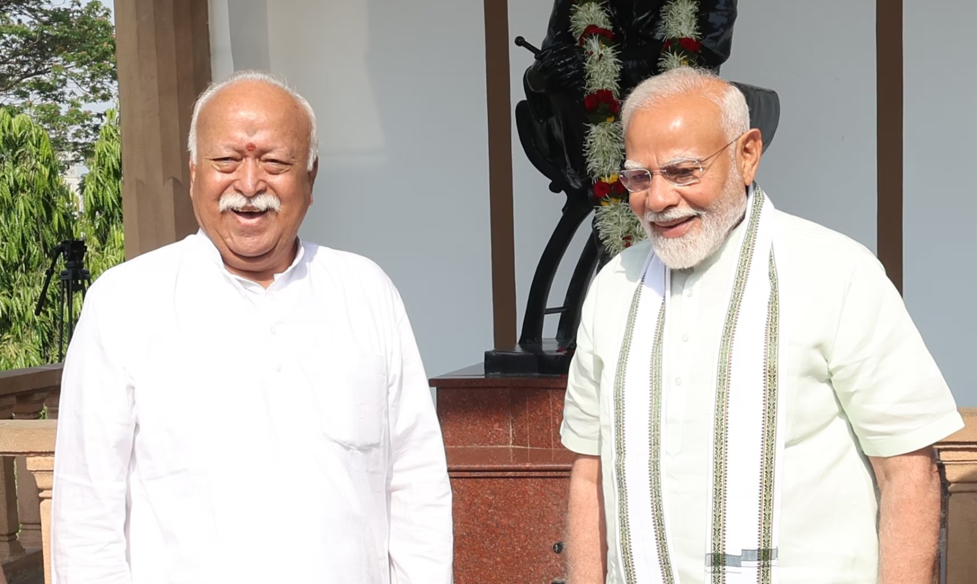
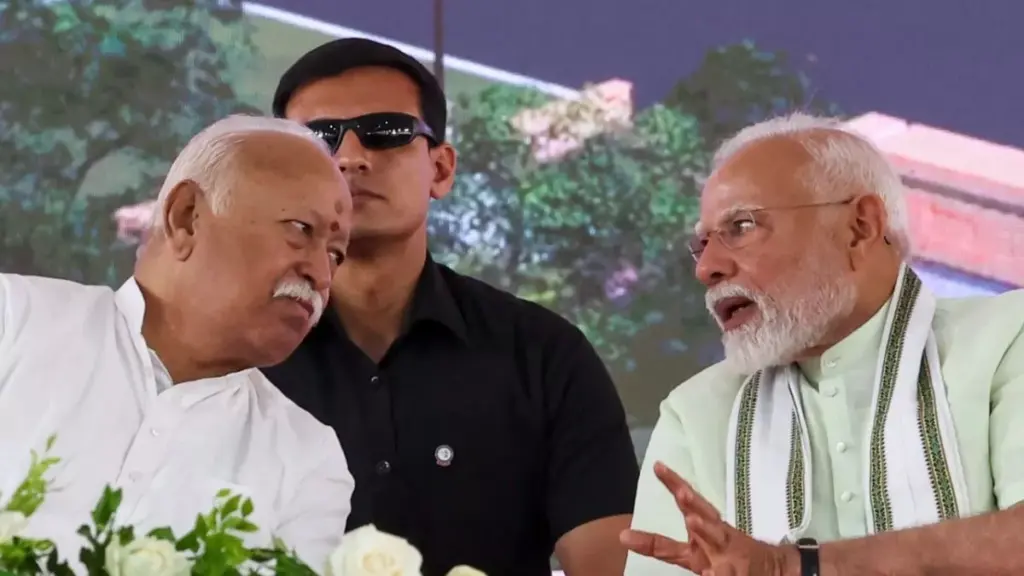
The Making of a Leader: Early Life and Formative Years
Dr Mohan Bhagwat was born on September 11, 1950, in Chandrapur, Maharashtra, and is the son of a family that had a strong RSS heritage. His father, Madhukar Rao Bhagwat, was not only a civil engineer and a lawyer, but also an active RSS activist who worked as a Karyavah in the Chandrapur zone and thereafter, as a Prant Pracharak in Gujarat. This is because this early exposure to the ideology and values of the organisation would play a central role in influencing the way young Mohan views the world.
Mohan Bhagwat family consist of his mother, Malati, who was an active member of a Rashtra Sevika Samiti (RSS Women’s Wing), two younger brothers, Chittaranjan and Ravindra, and one sister. Mohan was the first of four children growing up with leadership qualities, much to his credit, and these qualities would later prove to be characteristic of his leadership as RSS Chief Mohan Bhagwat.
One of the most interesting aspects of the story of Bhagwat is his first career choice. He had his schooling in Lokmanya Tilak Vidyalaya in Chandrapur and went on to obtain higher education in Janata College and finally a degree in Veterinary Sciences and Animal Husbandry at Government Veterinary College, Nagpur. This scientific experience would later affect his practical nature of leadership and his capability to harmonise more traditional values and modern thoughts.
The Life-Altering Decision: From Veterinary Practice to National Service
In 1975, when India was under the Emergency proclaimed by the Prime Minister Indira Gandhi, a young veterinary doctor came to a conclusion that would not only alter his life but also the history of India. He had left behind his promising medical career and well-paid veterinary career to join the RSS as a full-time worker, or pracharak.
This was a very personal cost. Bhagwat was an intern and later a full-time veterinary doctor in a government hospital in Chamorshi, Chandrapur, where he was establishing a successful practice. He even began to study post-graduate studies in veterinary sciences. But national service was stronger than ambitions.
Underground during the Emergency period (1975-1977), Bhagwat was leading resistance to what many considered to be an authoritarian regime. His organisational skills and strategic thinking, which were demonstrated in his escapes from arrest under the Maintenance of Internal Security Act (MISA), were to benefit him later in the leadership positions that he would take.
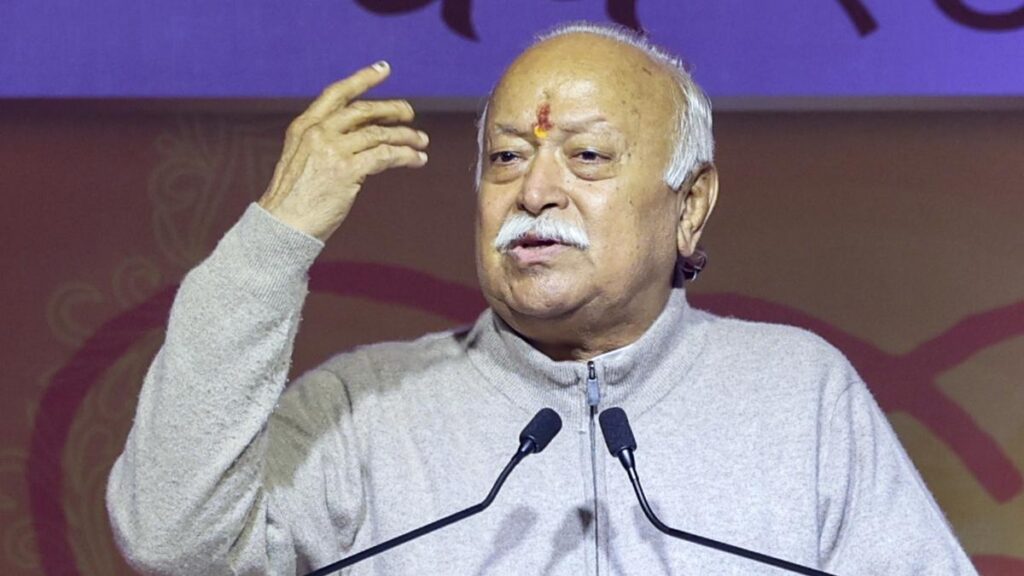
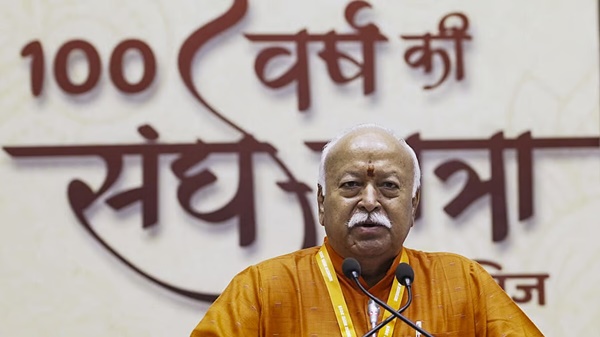
Rising Through the Ranks: A Testament to Dedication and Vision
Once the Emergency was over in 1977, RSS Mohan Bhagwat started his impressive rise up the hierarchy of the organisation. He began by serving as a pracharak in Akola, Maharashtra and steadily accumulated more responsibilities in Nagpur and the Vidarbha region. His work was marked with a creative way of extending the reach of the RSS, especially to difficult territories.
Among his greatest contributions of this time was that he restored the vitality of the RSS in Bihar, where he was able to build the base of the organisation in a region characterised by complex social and political relationships. This was a success that indicated that he could manoeuvre through different cultural environments without compromising the fundamental values of the RSS.
In 1991, Bhagwat became the Akhil Bharatiya Sharirik Pramukh (national in charge of physical training), which he served until 1999. The position gave him a chance to influence the physical and mental training of RSS volunteers throughout the nation with a focus on discipline, character development and national service.
Another landmark event was when he became Sarkaryavah (General Secretary) in the year 2000, thus becoming the second-in-command of the organisation. In this position, he helped in transforming the RSS style without losing its original values, a balancing effort that would in fact be his hallmark leadership style.
The Youngest Chief: Taking the Helm of India’s Largest Voluntary Organisation
He became the sixth Sarsanghchalak (Chief) of the RSS on March 21, 2009, at the age of 58, becoming the youngest leader of the organisation since K.B. Hedgewar and M.S. Golwalkar. This leadership was timely as India was facing unprecedented social and economic transformations in need of leadership that would be able to balance between tradition and modernity.
The RSS has changed a great deal over the years, but it has not lost its central identity under the leadership of Bhagwat. He has played a big role in extending the organisation to other countries, with RSS currently present in more than 50 countries in organisations such as the Bharatiya Swayamsevak Sangh and Hindu Swayamsevak Sangh. It currently operates over 200,000 welfare initiatives in India that are concentrated on education, health, and social empowerment.
At Present (2025), Mohan Bhagwat age is 75; it is not only an individual continuity but an institutional continuity. He has become the third-longest serving RSS chief after M.S. Golwalkar (33 years) and Madhukar Dattatreya Deoras (20 years), and has headed the organisation for over 16 years.
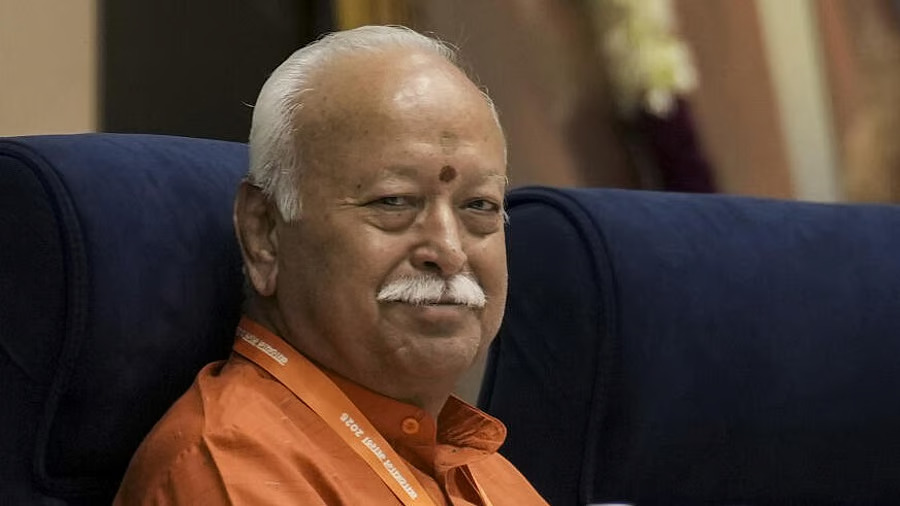
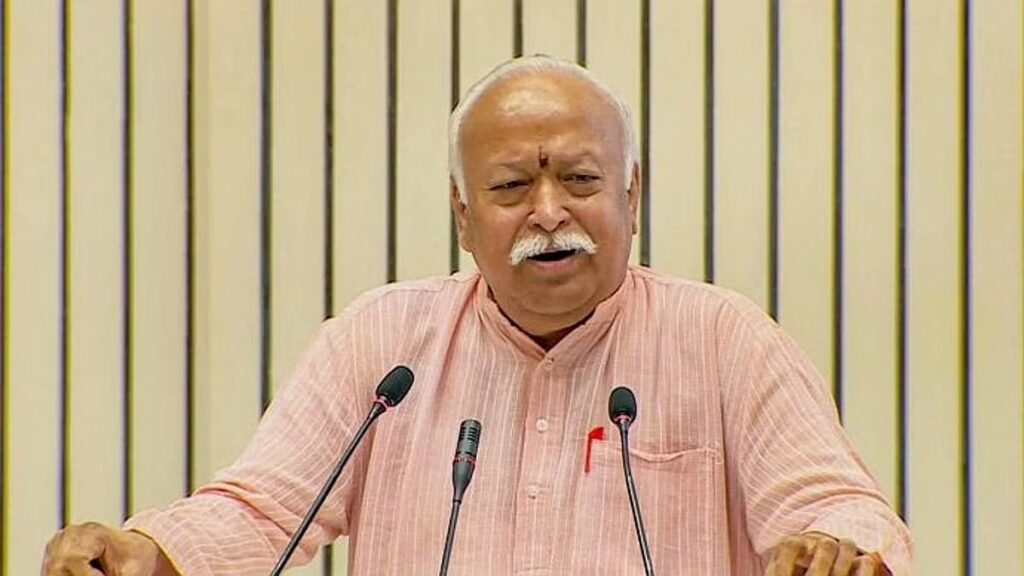
Personal Choices and Sacrifices: The Man Behind the Leader
One of the most interesting parts of Mohan Bhagwat is his personal decisions in life. He has never been married throughout his life; instead, he has been fully devoted to the cause of national service, unlike many other public figures. People find a man who preferred institutional family to personal family when they search for Mohan Bhagwat wife or mohan bhagwat daughter.
This is not a rare feature of RSS leaders who should live a life of total devotion to both organisation and country. Nevertheless, the case by Bhagwat is of specific interest since it is a deliberate decision of a person who could easily have led a comfortable life as a successful veterinary practitioner.
The net worth of Mohan Bhagwat is a question that usually comes out, but the response says a lot about the man. Bhagwat lives a very simple life, unlike many people in the public who amass wealth. His personal wealth is estimated variously, with the majority of the sources stating that he has no major personal assets, only basic needs. The RSS takes care of their basic needs as full-time workers, but luxury is not part of their way of life.
Security and Recognition: The Price of Influence
Considering his great influence on Indian society and politics, Mohan Bhagwat security has turned into a national concern. In 2024, his security status changed to the Advanced Security Liaison (ASL) protocol by the government, second only to that of the Prime Minister.
This upgrade followed when intelligence agencies were fed with information of possible threats from anti-Indian organisations and radical Islamist groups. The ASL protocol also provides full security coordination with the local authorities wherever Bhagwat will travel, and he will be involved with the district administration, police, health departments, and other concerned authorities.
His security set-up is the Central Industrial Security Force (CISF), which consists of up to 55 security staff, of which there are approximately 10 National Security Guard (NSG) commandos, bullet-proof cars, and three shifts of escort staff. Such a high level of security points to not only personal protection requirements, but also the realization of his position as a prominent participant of the socio-political life in India.
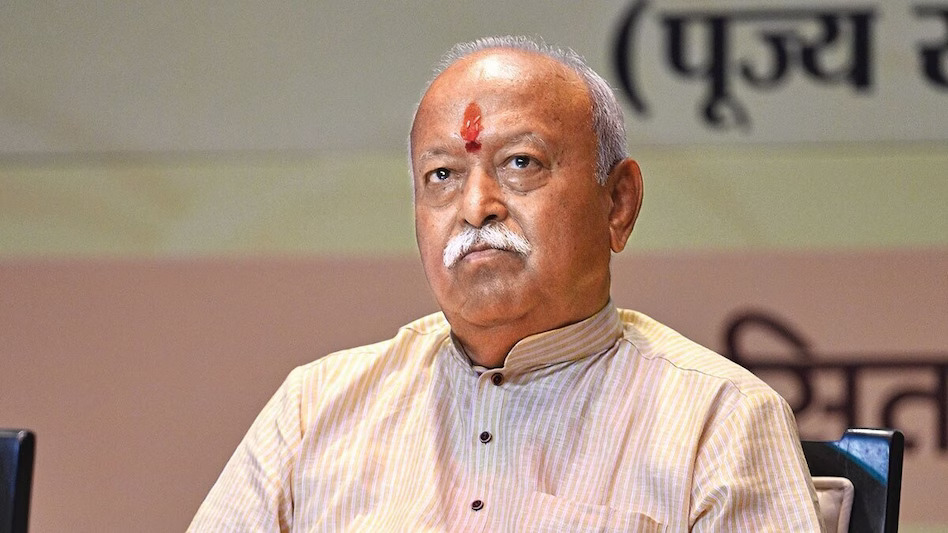

Intellectual Contributions and Literary Works
Mohan Bhagwat books are the intellectual contribution by him to the modern Indian thought. His greatest contribution was his book titled, Yashasvi Bharat (Successful India), in which he describes his vision of a successful and peaceful India. His ideas about nation-building, social cohesion, cultural preservation, economic development, and national security are also reflected in the book.
Bhagwat, in his works, relies on the teachings of RSS and his personal experiences to give a roadmap of a strong and self-reliant India with the ideals of unity, discipline, and service. His literary works also contain numerous speeches and articles on stories about spirituality and science as well as about education and national identity.
Navigating Modern Challenges: Statements and Controversies
The recent past has witnessed a series of Mohan Bhagwat statements on numerous current issues that have brought a lot of debate and even controversy. His comments on issues as diverse as temple-mosque contests and population policy, and national identity have created arguments on both ends of the political spectrum.
Bhagwat warned in December 2024 against the spread of temple-mosque conflicts in the wake of the Ram Temple construction, saying that a new issue (dispute) was being stirred up every single day. How can this be allowed? This cannot continue. India must prove that we can co-exist. Such pragmatism has occasionally clashed with more radical nationalist forces in the Hindus.
His recent comments about India getting real independence on the day of Ram Temple consecration at Ayodhya instead of August 15, 1947, were heavily criticised by opposition parties as treason and an insult to the freedom movement.
Social Perspectives and Cultural Identity
The topic of Mohan Bhagwat caste is an important concern that is raised when talking about his background. He is a member of Karhade Brahmin community, which is a sub-group of the Brahmin community in Maharashtra. But during his tenure, the RSS had consciously tried to transcend caste boundaries and establish a more inclusive Hindu identity.
Bhagwat has condemned caste discrimination and untouchability and said that there is no room in the Hindu society where such practices can flourish. His method is an extension of RSS thought, shifting towards a more inclusive upper-caste focus to a wider Hindu identity of representing all the communities.
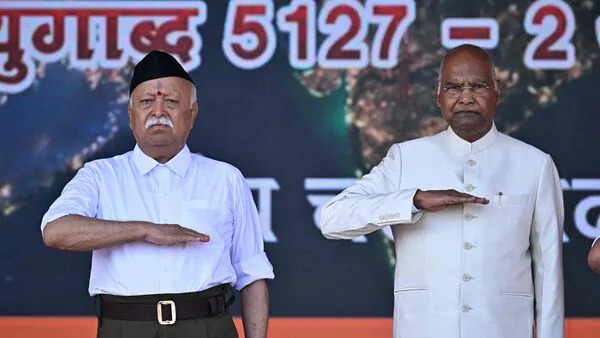

Legacy and Future Vision
His legacy is many-layered as Mohan Bhagwat also finishes 16 years at the head of the RSS. He has managed to modernise the organisation, preserving its very values, increased its scope of presence and created an organisation that has become an important player in the modern Indian politics and society. The RSS today is also more active in social matters under its leadership and has widespread welfare programs and educational activities.
He has a much greater influence than the RSS itself has. The ideological influence of the organisation in the ruling party of the Bharatiya Janata Party (BJP) and the government of Prime Minister Narendra Modi is unmistakable. RSS thinking has left its mark on many of the most significant policy decisions and national initiatives, and as a result, Bhagwat is one of the most influential figures in modern India, despite not occupying an official government post.
The interaction between the RSS chief Mohan Bhagwat and the political leadership is another peculiarity of the Indian democracy, though an ideological organisation has a great impact on the government by way of moral authority, not direct political influence.
Lessons from a Life of Service
The life of Mohan Bhagwat provides a number of important lessons to every person who wants to leave an impact:
Sacrifice toward Higher Cause: His choice to leave a promising medical career can help to show that individual sacrifices can create more impact at the societal level. This decision made him a prospective national leader of millions living in a town and not just a veterinary practitioner.
Slow but steady by Dint of Hard Work: His career as in RSS spans more than fifty years and demonstrates the effectiveness of hard work and slow learning. Every position equipped him to take up more responsibilities.
Tradition vs. Modernity: The fact that he managed to preserve the organisational values when adjusting to modern times can teach something about the importance of effective leadership in changing times.
Power of Institutional Commitment: His single life and modest ways of living illustrate that institutional commitment could be used in developing moral authority and credibility.
Strategic Communication: His skill of conveying complicated ideological stances in simple language reflects the need to have great communication when it comes to leadership.
Applying These Lessons in Your Own Life
The story about Mohan Bhagwat provides valuable tips on improving oneself and his work:
Pick Purpose, not Comfort: Think about the ways your career decisions are related to your bigger purpose and whether they could affect people. The lesser of the evils is sometimes the road to more fulfillment.
Accept Slower Development: Get used to being excellent in what you are doing as you work towards greater accountability. They all are training areas of higher challenges.
Learn to be culturally intelligent: You have to learn to operate in varying settings without compromising on your personal values like Bhagwat managed in various parts of India.
Establish Ethical Authority: Coherence between personal and professional standpoints brings the believability to successful leadership.
Master Strategic Patience: Victories in the long term are usually not achieved easily but instead after decades of continuous work.
Frequently Asked Questions (FAQs)
Who is Mohan Bhagwat?
Mohan Bhagwat is the sixth and current chief (Sarsanghchalak) of the Rashtriya Swayamsevak Sangh (RSS), India’s largest voluntary organization. He was born on September 11, 1950, and since March 2009, he has been the leader of the RSS, which is why he is one of the most impactful representatives of the modern Indian society and politics.
Where does Mohan Bhagwat live?
Mohan Bhagwat has his main base at the RSS office in Nagpur, Maharashtra. His residence is in the barebones quarters of the RSS Karyalaya in Mahal, Nagpur, the formal settlement of senior RSS leaders. The house has a very simple lifestyle which is of very basic amenities and no luxurious accommodations.
Who is Guruji of RSS?
In RSS tradition, the term “Guruji” is specifically used to refer to M.S. Golwalkar, the second Sarsanghchalak of the organisation, who served as the leader of the organisation between 1940 and 1973, or 33 years. He is regarded as the ideological designer of modern RSS and the author of the book of influence “Bunch of Thoughts.” Although Mohan Bhagwat is the present chief, Golwalkar is still the Guruji of RSS.
Transform your life with purpose-driven leadership – let Mohan Bhagwat’s journey inspire you to choose service over comfort and create lasting impact in your community.
